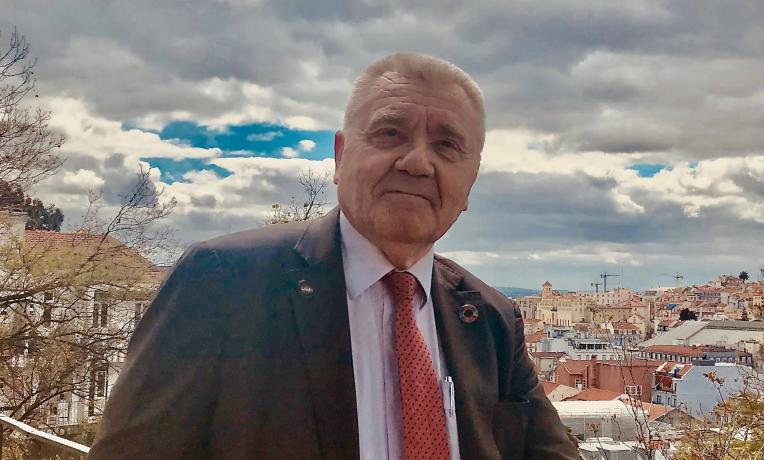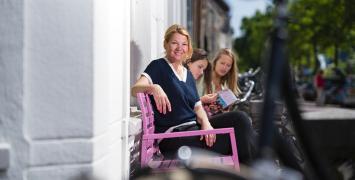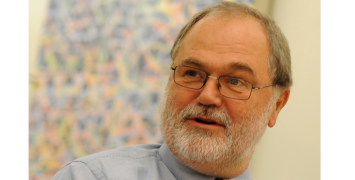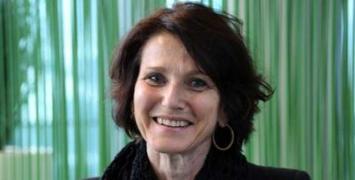Farewell message from Jean-Pierre Bourguignon

As August draws to a close, time has come for me to bid farewell to the ERC – and this time for good. It has been a privilege to again serve an organisation that is so dear to me. I would like to take stock of the past eventful year and share some views on the way ahead.
After six years at the helm of the ERC, I had just started focusing on mathematics and spending more time with my family when an invitation came from the ERC Scientific Council to consider taking a new mandate as ad Interim President. Although I was aware the ERC had gone through a leadership crisis, it was a surprise. Driven by my deep respect for the Scientific Council and its capacity to defend the ERC’s core values, I accepted to help hold the fort until the next President would take over. Still, this could happen only after a negotiation with my wife!
I knew the time was particularly critical for the organisation and for European research. The world was trying hard to cope with the devastating COVID-19 pandemic. Early on, it had taken its toll on the ERC Executive Agency (ERCEA). We are all still mourning Theodore Papazoglou, remembering his exceptional contribution to the ERC, his wisdom and his warmth. During these challenging times, I have been impressed – but not surprised – by the staff’s resilience. They put in extra hours at work and even cut short their holidays to work remotely with the ERC’s very loyal peer reviewers from around the world. The end result: not a single day of delay in the ERC’s granting and evaluation processes! A remarkable outcome that yet again bears witness to the exceptional dedication, professionalism and efficiency of the Agency’s staff. We owe them a big thank you! This achievement commands respect and, in order to sustain this drive, calls for measures to reward such a performance. There are indeed limits to efficiency gains one organisation can make.
During the COVID-19 crisis, research took centre stage and reliance on science peaked – a positive development. It is our responsibility though to make sure that the effect will be a lasting one. This will depend on our capacity to strengthen trust in science, when some are trying hard to weaken it by spreading fake news. The pandemic also shone a light on the fact that bottom-up frontier research plays an essential role in preparing us for the next major crisis. Indeed, it was quickly evident that research pursued by some 200 ERC grantees addressed the pandemic in many ways, building on work undertaken before its onset.
A celebrated example is Uğur Şahin, who founded BioNTech, hence a key person behind the Pfizer-BioNtech vaccine that is helping to save countless lives. We must stress that the vaccine could be developed in record time (nine months) only because of decades of prior curiosity-driven research. EU backing for his work, including that of the ERC, was crucial. Clear lessons to politicians both at national and at EU level: don’t put all your eggs in one basket! Avoid focusing only on immediate research results and narrow policy objectives, but rather give bright minds the freedom to follow their curiosity and scientific instinct. It is in this way that we can best prepare for an uncertain future. No one can say that we have not been warned.
Let me dwell on the political scene. In July 2020, EU Heads of State and Government decided to slash an already moderately ambitious budget for the EU Research and Innovation (R&I) Framework Programme, Horizon Europe, of which the ERC is part. This left many of us in shock. How could such a decision be taken in the middle of the pandemic, when leaders set ambitious objectives for key transitions – many of them relying heavily on science and technology! From then on, all our efforts focused on turning the tide. Last autumn, tough negotiations for the next EU long-term budget followed. It was imperative to restore a more decent figure for R&I. By year-end, a deal was reached, which meant a less bleak outlook for European research and the ERC. Let me thank all those who stood up for science – not least many members of the European Parliament and of the scientific community.
In 2021, the challenge of getting Horizon Europe launched on time kept the ERCEA staff very busy. What was at stake was to provide timely support to researchers around Europe. In the end, the ERC’s 2021 Work Programme was finalised early this year and the 2022 Work Programme approved on time in July. This required numerous interventions with and by people in the European Commission. It was one of the topics that I discussed a number of times with Commissioner Mariya Gabriel. We talked about a range of other issues on a weekly basis, and I would like to thank her for making herself available for regular and fruitful exchanges.
Another topic the ERC focused on lately is the preparation of the Conference on the Future of Europe, set to end next spring. This initiative invites European citizens to propose ideas to improve our common future. It is a key moment to express loud and clear that the future of Europe will be shaped by how it performs in R&I. Giants on other continents in the West and in the East are investing massively, setting a high bar for global competition in R&I. If Europe wants to be a front-runner that creates the breakthroughs and industries of tomorrow, it must prioritise R&I!
This is why, at the ERC, we were taken aback when we saw that R&I were not part of the nine key priority topics to be addressed in the Future of Europe debate. I therefore urge researchers, and all who recognise the value of science, to have their say and add their views on the platform of the Conference! Your voice matters. The more of us speak up, the more impact we will have.
With the health threat that COVID-19 has brought and with the escalating climate crisis unfolding before our eyes – and I could list a few more worries – Europe is facing serious challenges that require long-term action. One thing is clear: investing in science is essential for a better and safer future.
The European Research Council therefore needs to continue to thrive for the decades to come. A key ingredient for its success has been its independence – it is paramount that it is kept intact under the guidance of the Scientific Council. Its clear focus on curiosity-driven research with scientific quality as the only selection criterion is also at the heart of its ethos, and it should never be diverted by any political priorities.
With this in mind, it is with complete trust that I hand over the baton to Maria Leptin, a first-class scientist with many competences, with whom I have had the privilege to interact over many years. After her nomination was announced at the very end of June, Maria will take office later this autumn. Although a hand over period longer than two summer months would have been preferred, she is ready to embark on the enriching journey that awaits her. I wish her all the best. She can count on an engaged Scientific Council and the full support of a very special Agency – two bodies for which I have only praise. But, in the end, what truly matters is to remain close to the scientific community, and to anticipate its needs. Helping scientists and scholars to be ambitious and in particular giving hope to the next generation – these have been key purposes of the ERC since its creation. I am sure the ERC will continue to meet its goals even if it means fighting some more battles.
Long live the ERC! Vive l’Europe!
Read also
- ERA: Translation of shared European objectives to action on national levels
- Keynote Address to the Informal Competitiveness Council, 19-07-2021
- Facing challenges at a critical time: Jean-Pierre Bourguignon back at the ERC
24-07-2020 - Farewell from Jean-Pierre Bourguignon
20-12-2019





